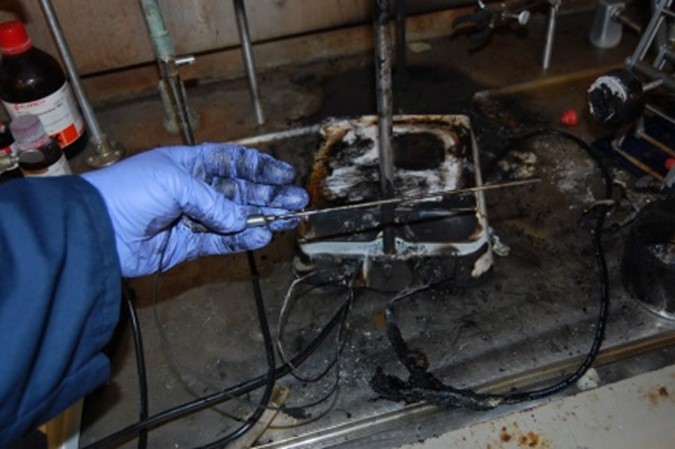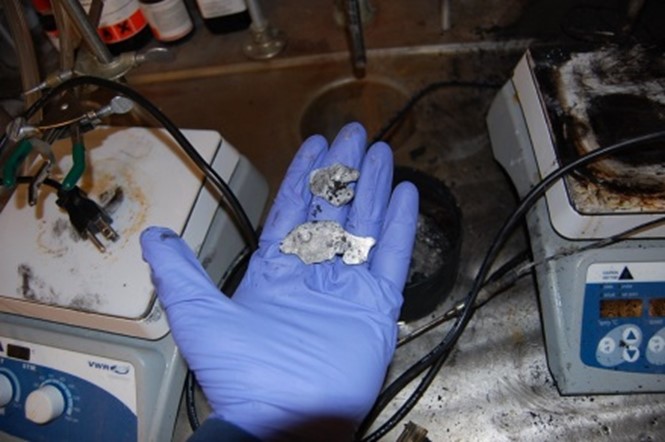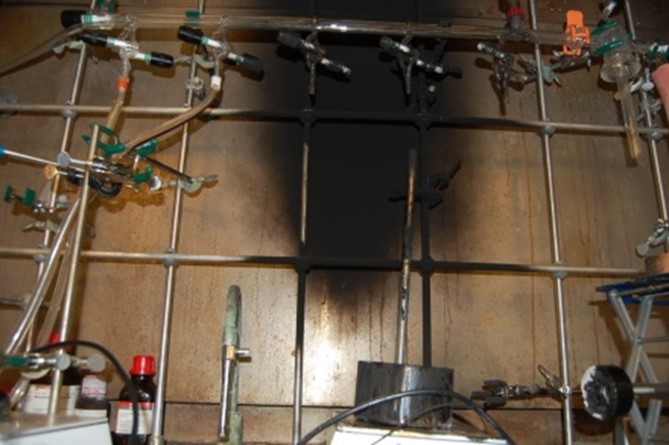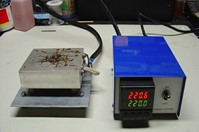Safety Issues of Hotplate Heating Controls
Background
Spontaneous and unexpected heating of hotplates has been one of the causes of laboratory fires and explosions.
In 2005, Lawrence Berkley National Laboratory issued a safety advisory related to a corning model PC 420 hot plate.
In 2007, 2011, 2012, 2014 the University of California, University of Pennsylvania, MIT, and Oak Ridge National Lab issued similar safety advisories for Corning PC-35, PC-200, PC-220, PC-351, Fisher Iso Temp and the Thermolyne Model: SP46925.
Incident at Texas Tech University
Thermocouple malfunction led to excess heating of oil bath. The container broke and the oil ignited, causing a fire. Smoke set off the alarm inside the fume hood, then eventually leaked into the room setting off the fire alarm. The aluminum clamps melted by heat.



Issues Found at Texas Tech University
Liquids in contact with electronics may cause shorts. Newer hotplates with TRIAC or microprocessor-controlled heater switches may spontaneously heat in the OFF position due to liquid exposure to the electronics. Temperature sensors may be misplaced, fall out or malfunction.
Laboratory Safety Recommendations
Unplug inactive hotplates or heating mantles near oil baths, combustible, or flammable material.
Additional hotplate safety features to look for are two independent temperature control circuits, which switch off heating in case of an over temperature situation.
Alternatively, a hotplate can be powered up through a separate high temperature control unit. This approach physically separates the primary and high temperature sensor and related control/switch functions.

Communicate to all lab personnel the critical importance of housekeeping. Consider the possibility the hotplate could spontaneously engage and heat up even when the switch is in the OFF position. For questions or concerns please contact TTUEHS at 742-3876.
Environmental Health & Safety
-
Address
Texas Tech University, 407 Flint Ave, Lubbock, TX 79409 (Mail Stop 1090) -
Phone
806.742.3876 -
Email
safety@ttu.edu
